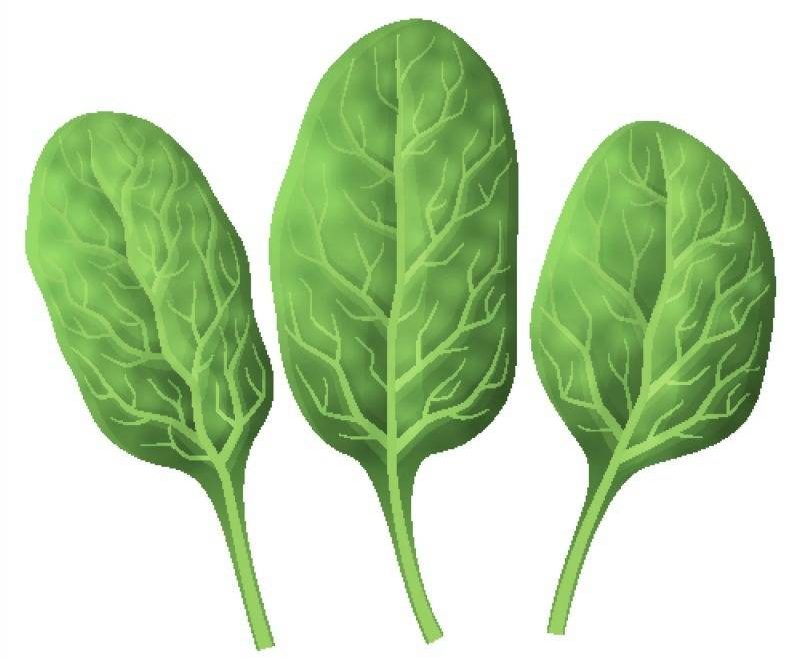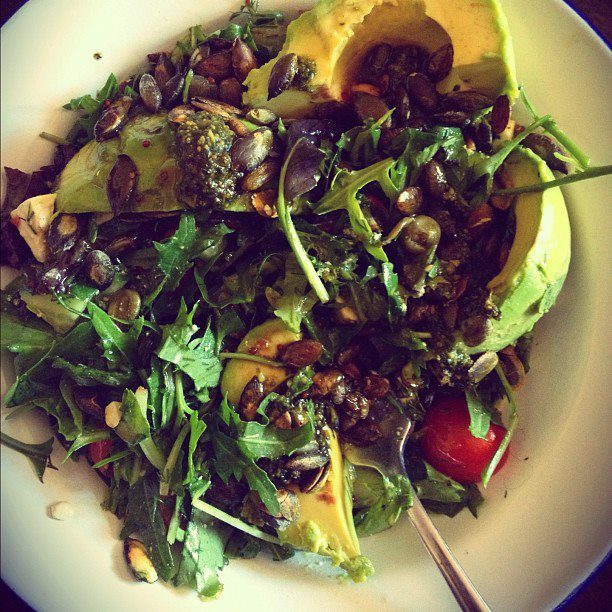Chew. Your stomach doesn’t have teeth. – Kris Carr, Crazy Sexy Diet
There are lots of reasons why I want you to chew your food. Here are a few of them.
Feel Full Faster
When you take the time to properly chew your food, you will eat slower, and far less, but still feel full after your meal. Eating slower gives your brain time to register that you are eating, and therefore it is able to send a signal that you are full when you have eaten enough. You usually have to be about 20 minutes into the meal before your brain is able to send this signal.
Knowing when to stop eating will not only prevent you from gaining excess weight, but it will also help you to lose weight. It will also prevent you from feeling uncomfortably full and tired after your meal.
Helps Absorb Nutrients
Digestion begins in the mouth as soon as the food is exposed to saliva. The longer you chew your foods, the more the food will be exposed to saliva, and as a result more nutrients will be absorbed. This is especially true for nuts and seeds as well as fruits and vegetables, as they contain hard cellulose fibers which cannot be broken down anywhere but in the mouth. This is why when you eat nuts, corn or other vegetables they just seem to pass through your system if they are not properly chewed.
When your body is able to absorb all the nutrients from the foods that you eat you will have much higher energy levels. On top of that, no energy will be wasted on eliminating foods that the body cannot digest or break down.
Prevents Heartburn
Properly chewing your food helps to make it easier on the esophagus, as well as your digestive system because you will eat less at each meal. It prevents you from swallowing air along with your food, which can also contribute to heartburn. Chewing also promotes the secretion of saliva which naturally helps to neutralize stomach acid, thus it helps to prevent heartburn.
Helps with Digestion
Carbohydrates are mainly digested in the mouth, by the alpha amylase enzyme found in saliva. The digestion of fat is also started in the mouth by the lingual lipase enzymes, which are produced by the salivary glands located underneath the tongue.
Food that is not properly chewed is not exposed to these enzymes properly, but instead is passed along into the colon in chunks where it feeds harmful bacteria. This can result in gas, bloating, abdominal cramping, constipation and other symptoms of irritable bowel syndrome.
Promotes Good Oral Hygiene
The saliva that is produced by the extra chewing helps to kill harmful bacteria, and washes away food particles from around your teeth. Additionally, saliva contains hydrogen carbonate which helps to neutralize plaque buildup.
Applying the Rules
Try putting your fork down in between bites. This helps avoid rushing through a meal. I also advice clients to eat away from their work desk and to turn the T.V. off. The less distraction while eating, the better for digestion.
Eating with friends, family and loved ones is an added benefit. We tend to talk when we’re dining with others, which helps slow our eating down. In traditional cultures, families sit and eat together every day. Sharing food and enjoying it together, is another excellent way to increase nutrient absorption as it relaxes the digestive system.
Next time, sit down for that meal. No more eating over the kitchen sink!




